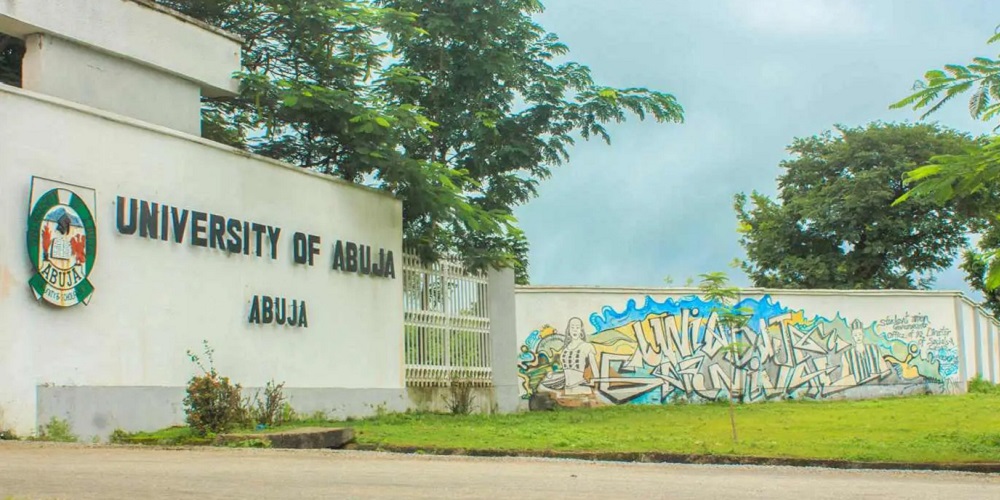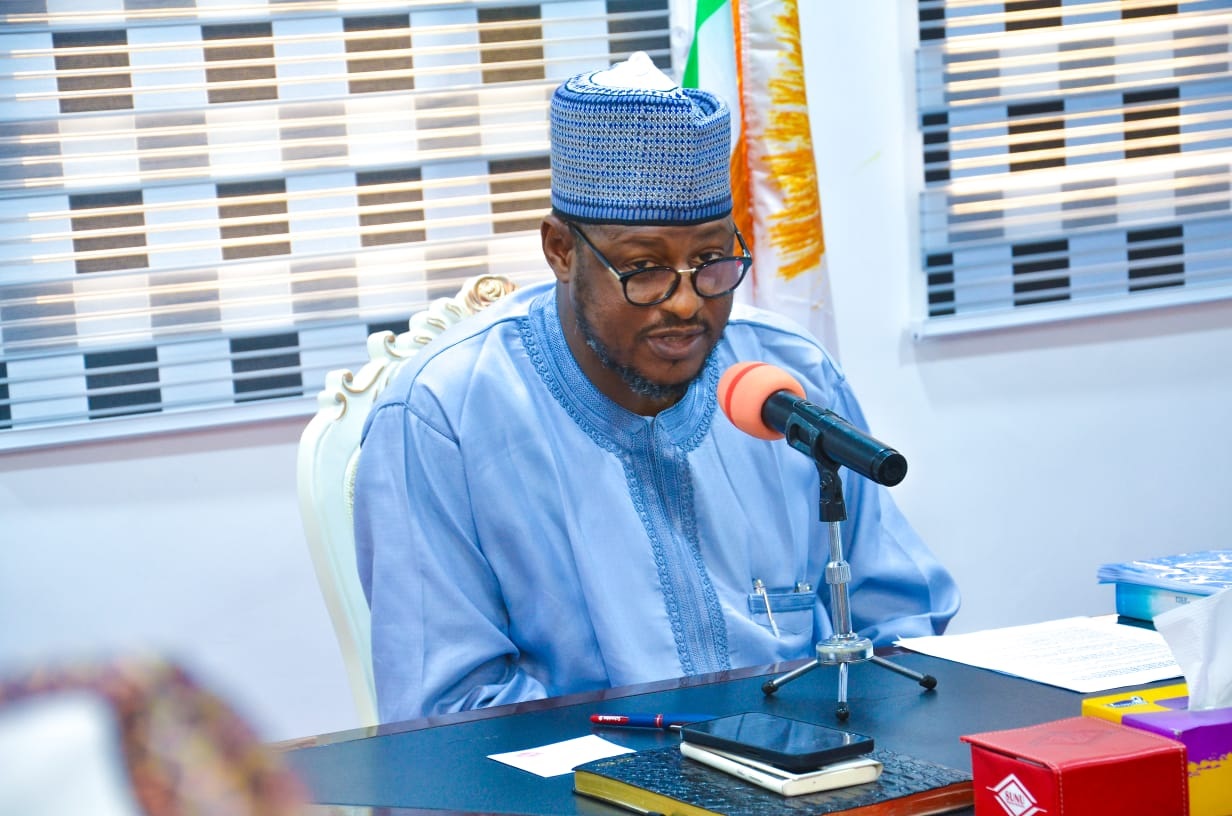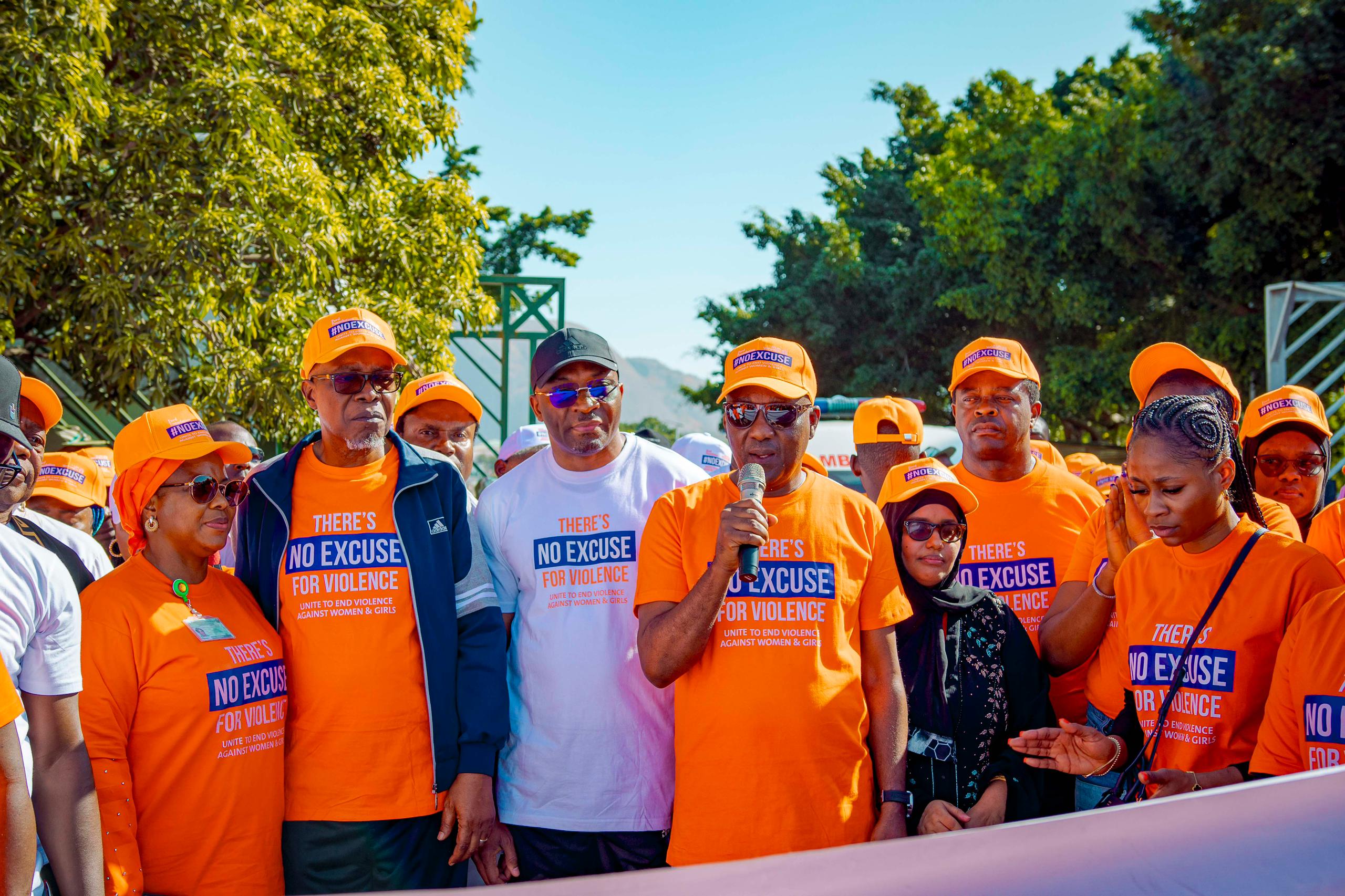News
UNIABUJA yet to comply with court order reinstating 21 staff

One year after 21 staff members of the University of Abuja, UNIABUJA, got a judgment from the National Industrial Court, Abuja, ordering the institution to reinstate them, the institution is yet to comply with the judgment, an investigation by Vanguard has revealed.
The 21 workers were part of the 32 that were disengaged by the management of the institution in 2016.
The workers were non-teaching senior staff employed by the university in February 2008. Three of the workers are now dead.
They said: “We were legitimately employed after due process in February 2008. Thereafter some of us transferred our services to the university from our former employers while others were confirmed after the two-year probationary period.
“Along the line in 2015, there was an industrial dispute between the University of Abuja union leadership and the then management of the former Vice Chancellor, Prof.Michael Adiukwu.
“Coincidentally in the same 2015, the Federal Government issued a circular to federal universities to stop sending the names of teachers in their staff schools to the government for salaries but followed the 2009 agreement between the Federal Government and the Senior Staff Association of Nigerian Universities, SSANU.
“We sent a delegate to Benin to meet with the then Council Chairman now of blessed memory, General Samuel Ogbemudia and narrated our matter to him. He listened to us and reasoned with us with a letter to the management not to tamper with our jobs. As we were exploring that avenue, the national body took the Federal Government to NICN.
“Rather than listening to the Council Chairman, the management set up a committee for the disengagement of staff school teachers that same year when the matter was already in Court and the judgment came in December 2016. Meanwhile, we did not see any letter of disengagement let alone signing it.
“All of a sudden, we just discovered that our salaries were stopped in January 2017 but we continued our work and they even provided buses to carry our students. They sent students to us for teaching practice.
“In 2017, the Federal Government issued a circular to all VCs of federal universities to stop further action concerning staff school teachers pending the determination of the matter in court. In the same 2017, the federal government issued another circular to all VCs that the implementation of the court judgment would start on January 1, 2018.
“Rather than recall us, the University of Abuja only took those staff in Basic 1-6(whose salaries were not stopped and redeployed them to other departments in the University and left us from Basic 7-9 alone languishing in pain. We went to the NICN in two groups in 2021and the first judgment came in our favour on March 23, 2023,” one of the affected workers told Vanguard in confidence.”
News
Katsina gov presents N682bn 2025 budget to State Assembly

Governor Dikko Radda of Katsina State on Monday presented the State’s 2025 Budget Proposal to the state House of Assembly.
This is the second full year budget the governor is presenting to the House, which is in the sum of N682,244,449,513.87, covering Recurrent Revenue and Expenditure.
The Budget’s Recurrent Expenditure stands at the sum of N157,967,755,024.36 representing 23.15% while, Capital Expenditure stands at N524,274,694,489.51 representing 76.85%.
The Governor in his speech, announced that, the total of this budget when compared with that of the 2024, has an increase of N200,535,619,501.61, representing 40% increase.
The Governor, at the beginning of his speech, assured the House that his administration has achieved many of its goals and is on course to meet and exceed its targets.
He insisted that his administration has successfully reversed the tide of insecurity which severely threatened the peaceful co-existence of people in the State.
“Many of our local governments have been restored to normalcy while pushing the bandits to the fringes of the forests and, Insha-Allah, to the end of their existence.
“We have expended a lot of resources in fighting insecurity, and we shall continue to do all we can to protect lives and livelihoods in our dear state. I thank the Honourable Members for your support and dedication to ultimate victory,” he said.
The Governor while ranking MDAs by allocations, revealed that the Economic Sector got N302,246,140,569.76 representing 44.3%, followed by the Education Sector with 95,995,873,044.70 representing 14%.
In the same vein, the Ministry of Agriculture and Livestock Development got 81,840,275,739.70 representing 12% while the Ministry of Rural and Social Development got 58,728,146,293.72 representing 9%.
Other sectors such as the Ministry of Water Resources, 53,832,219,322.46 representing 8%, Ministry of Environment, 49,835,521,799.25 representing 7%, Ministry of Health, 43,881,752,172.75 representing 6%, Ministry of Internal Security and Home Affairs 18,938,508,746.95 representing 3%, Ministry of Works, Housing and Transport 9,684,806,758.56 representing 10%.
Other sectors he said are in the sum of 230,759,902,908.71 representing 31% of the total proposed budget
News
NNPC’s failure to fix refineries might encourage Dangote to be monopolistic

Despite bickering between the Dangote Petrochemical Industry and the Nigerian National Petroleum Corporation Limited (NNPCL), a group of Nigerians in Diaspora has entertained fears that the leading regulatory agency might be secretly encouraging Dangote Refinery to be monopolistic in oil distribution in the country.
Dr. Donald Illiya, Global President of Nigerians in Diaspora Movement
(NDM), in a statement signed Monday morning from London, United Kingdom, said the public faceoffs between the NNPCL and Dangote refinery is confusing, and might be to distract Nigerians, while the regulatory body encourages Dangote to be the sole oil distributor in Nigeria, by suppressing the state owned local refineries and hold them continually in comatose.
“The Nigerians in Diaspora Movement have watched with perplexity the choreographed performance between the Nigerian National Petroleum Company Limited (NNPCL) and Dangote Petrochemicals Refinery, which is meant to keep exploiting Nigerians by making them pay more than reasonable pump prices for refined petroleum products.
“For us, taking in the state of the nation’s economy and the ongoing cost of living crisis, we are of the view that Nigeria’s fate is tied to the state of government-owned refineries, which must be made functional to cause a consequential drop in the prices of fuel and a positive knock-off effect on the cost of living.
“From our review of the murky situations around the refining, importation, supply and pricing of petroleum products, we are constrained to conclude that NNPCL and its officials are aiding Dangote Refinery to emerge as a monopoly by failing to revive domestic refineries while obscuring this fact by being publicly hostile to each other”, the statement said.
The group, while asserting high level of corruption in the energy sector, said, despite spending over N17 trillion to rehabilitate the Port Harcourt, Warri and Kaduna refineries from 2002 to 2022, and still spending more, even under the present regime of President Bola Ahmed Tinubu, the local refineries have remained comatose.
“We are concerned that the unfolding drama is part of a larger plot to conceal the fact that NNPCL has kept its track record as a cesspit of corruption, which is most prominent in the phantom turnaround maintenance of the government-owned refineries. From when NNPCL Group CEO, Mele Kyari assumed office in July 2019, the administration of President Muhammadu Buhari approved $1.5 billion for the rehabilitation of the Kaduna, Port Harcourt, and Warri refineries. Another N54.66 billion was spent on refinery rehabilitation from January to June 2022.
“More funds have disappeared into the private coffers of those managing NNPCL such that additional monies have been spent even under the current government, bringing the total expenditure on refinery repairs to approximately N17 trillion on turnaround maintenance of the nation’s three refineries between 2002 and 2022.
“The only output Nigerians have had from this huge expenditure are the ever-changing delivery dates for the refineries to resume operation. In November 2023 a December 2023 target date was announced for Port Harcourt Refinery, and by December of that year, March 2024 was announced as a new date only for this to be altered at least three other times.
“The completion of repairs on Kaduna Refinery was set for the first quarter of 2024, but the refinery has only produced stories on why it is being delayed. Warri Refinery has not fared any better, as a similar first quarter of 2024 target date for commencement of operations, as announced by Mele Kyari, turned out to be folklore”, the group added.
They are of the opinion that, “It is consequently plausible that the failure to make these refineries functional is beyond incompetence and the theft of the funds meant for repairing them. It is now glaring that the refineries are being kept moribund to create a favourable condition for the emergence of a monopoly. This is a tragic turn of events at a time when jurisdictions worldwide are taking bold steps to prevent predatory and monopolistic tendencies to protect citizens and businesses”.
Nigerians in Diaspora Movement, therefore, urged “President Bola Tinubu to take decisive steps to purge the rot in NNPCL so that domestic refineries can resume production and ward off the dangers of succumbing to a monopoly, which also presents a single point of failure for the nation’s fuel supply”.
News
16 Days of Activism: Speaker Abbas Decries Increasing Violence Against Women

-

 News23 hours ago
News23 hours agoObasanjo narrates how he escaped becoming drug addict
-

 Metro13 hours ago
Metro13 hours agoFarmer allegedly beats suspected thief to death in Ondo
-

 Foreign14 hours ago
Foreign14 hours agoHezbollah launches largest attack on Israel, hits Ashdod naval base, Tel Aviv
-

 Metro13 hours ago
Metro13 hours agoArmy destroys 34 illegal refineries in Niger Delta
-

 News13 hours ago
News13 hours agoMany Pastors Are Not Enjoying Their Marriages Due To Wives’ Behaviours – Bamiloye
-

 News13 hours ago
News13 hours agoAbia bans unauthorised free medical outreaches
-

 Sports14 hours ago
Sports14 hours agoLukaku keeps Napoli top of Serie A with Roma winner
-

 News23 hours ago
News23 hours agoWe saved $20bn after Petrol Subsidy Removal and FX Rate Reforms, Says Finance Minister








